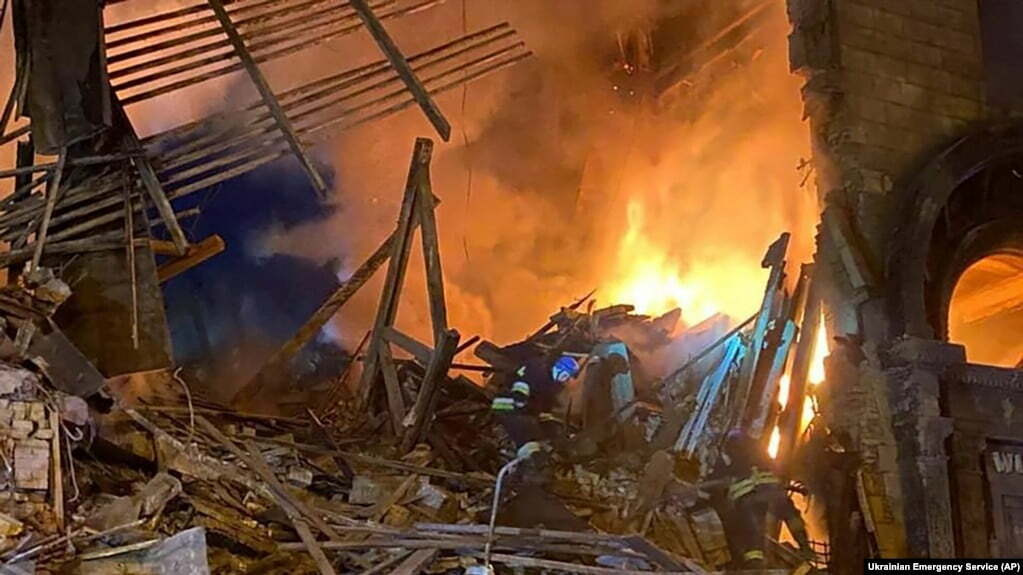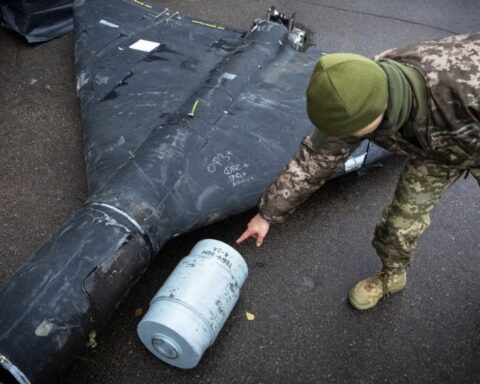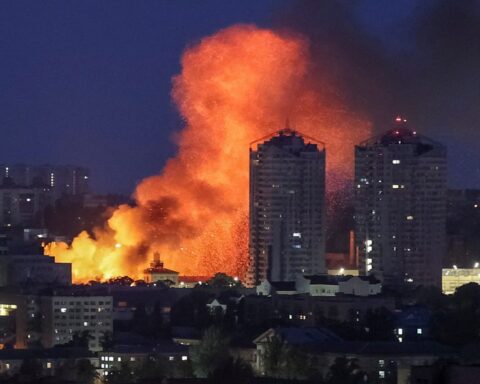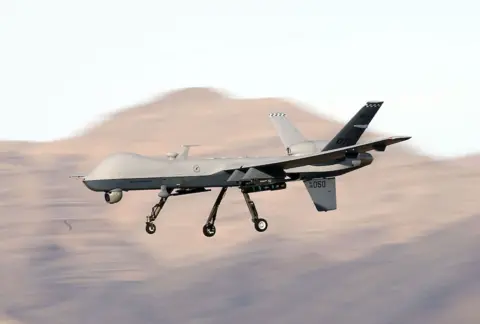HIGHLIGHTS
Thank you for reading this post, don't forget to subscribe!- A wave of missile attacks and other airstrikes on large urban centres in Ukraine this morning have left scores of civilians killed and injured and key infrastructure damaged across most regions of the country, including the capital Kyiv.
- The new escalation of Russia’s war on Ukraine comes just a couple of days after the Kerch Strait bridge, which connects the annexed Crimean peninsula with the Russian Federation territory, was reportedly damaged over the weekend.
- Schools across the whole country were closed, and hundreds of thousands of families were left without power supplies in several regions. Water and telecommunications services have also been affected in some areas.
- The wave of attacks, claimed by Russia, has also impacted humanitarian operations across Ukraine, particularly hampering the movement of aid workers and delivery of emergency supplies in the east of the country, where people are in desperate need of assistance.
- The UN and humanitarian partners are committed to stay and continue our work to save lives and support people whose lives have been upended by the war. Humanitarian operations will continue.
SITUATION OVERVIEW
A wave of missile attacks and other airstrikes on large urban centres in Ukraine this morning have left scores of civilians killed and injured and key infrastructure damaged across most regions of the country, including the capital Kyiv. The escalation of Russia’s war on Ukraine comes just a couple of days after the Kerch Strait bridge, which connects the annexed Crimean peninsula with the Russian Federation territory, was reportedly damaged over the weekend.
Schools across the whole country were closed, and hundreds of thousands of families were left without power supplies in eastern Kharkivska, western Lvivska, central Poltavska, northern Sumska and western Ternopilska oblasts, according to the State Emergency Service of Ukraine. Water and telecommunications services have also been affected in some regions. The wave of attacks, claimed by Russia, has also impacted humanitarian operations across Ukraine, particularly hampering the movement of aid workers and delivery of emergency supplies in the east of the country, where people are already in desperate need of assistance.
In Kyiv, a series of explosions since early hours in the morning were reported in central districts of the capital, including near to the Shevchenko University, when students were going to classes and people commuting to work. By noon, 5 civilians had reportedly been killed and nearly 50 more injured, according to preliminary data shared by the Ministry of Interior Affairs. This was the first missile attack on the capital since late June and forced the city authorities to stop the movement of some metro lines and convert the stations into shelters for the population. Critical infrastructure, including some civilian buildings, a pedestrian bridge, and parts of Shevchenko park, were damaged during the strikes, and emergency services are working to rescue survivors.
In Kharkiv city and parts of Kharkivska oblast in eastern Ukraine, energy systems were reportedly damaged, leaving the population also without water due to the lack of electricity to operate the pumps. The situation is similar in Dnipro, an important humanitarian hub in **central Ukraine, **where a missile attack left an unspecified number of civilian casualties. Water and electricity services are affected in parts of the city and other towns across Dnipropetrovska oblast, including Kryvyi Rih, a hub from where aid organizations position supplies for the humanitarian response in areas of Khersonska oblast where Ukraine recently regained control.
In the south, the situation is particularly concerning in Zaporizka oblast, where several missiles overnight have reportedly hit residential buildings and power lines. Yesterday 9 October, more than a dozen civilians were reportedly killed and over 50 — including above 10 children — injured during overnight strikes that damaged or destroyed dozens of homes in the city. Over the past few days, the administrative centre, Zaporizhzhia, has been impacted almost daily, leaving scores of civilians killed and injured and civilian infrastructure, including homes, schools, kindergartens damaged.
Still in southern Ukraine, a university, residential houses and warehouses were reportedly hit in Mykolaivcity, although no casualties reported. In the neighobouring Odeska oblast, some missiles and drones were reportedly intercepted or destroyed, according to the authorities.
In western Ukraine, several missile strikes were reported in Lviv city and across the oblast, reportedly targeting energy infrastructure, according to humanitarian security reports and the authorities. In the neighbouring Ivano-Frankivska, Khmelnytska and Ternopilska oblasts, attacks also targeted energy systems, according to the oblast authorities.
In northern Zhytomyrska, Rivnenskaand Sumska oblasts, attacks reportedly damaged energy facilities, disrupting power and water supplies in some areas, according to the authorities.
The new escalation of Russia’s war on Ukraine comes at a time when nearly 18 million people across the country are already facing life-threatening humanitarian needs following nearly eight months of ferocious fighting.
HUMANITARIAN RESPONSE
Government, volunteer groups, local and international aid organizations across Ukraine are working against the clock to mobilize assistance and support people impacted by the latest attacks. In Kyiv, rescue teams are evacuating people from areas that have been hit and providing first aid with the support of the Ukrainian Red Cross Society Rapid Response Unit. In Kharkiv and other areas, authorities have already started reparations to water and energy networks, while the NGO Mission Proliska, funded by the UN Refugee Agency (UNHCR), distributed emergency shelter kits in Zaporizhzhia yesterday. The humanitarian community will work to provide emergency supplies — including through using pre-positioned relief items in different parts of the country — to the people most affected by the strikes.









